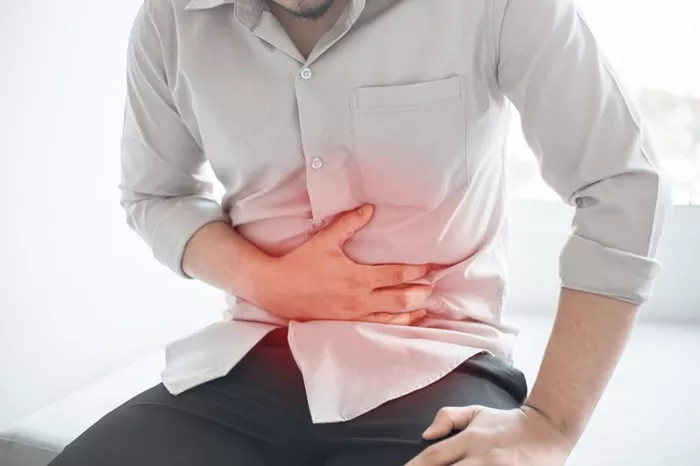Increased Frequency of Urination
One of the most prevalent symptoms of prostate enlargement is an increased frequency of urination. As the prostate gland grows, it can put pressure on the urethra, which is the tube that carries urine from the bladder out of the body. This pressure can cause the bladder to feel full more quickly than usual, leading to more frequent trips to the bathroom.
For example, a man who previously only needed to urinate four or five times a day may find himself going seven or eight times or more. This increase can be especially noticeable during the day and may also disrupt sleep patterns if it causes the need to urinate at night, a condition known as nocturia. A man with BPH might wake up two, three, or even more times during the night to urinate, which can lead to fatigue and decreased quality of life.
Difficulty Starting and Stopping Urination
The enlarged prostate can also cause difficulty in starting the flow of urine. When a man tries to urinate, he may have to wait for a few seconds or even longer before the urine begins to flow. This is because the pressure on the urethra can impede the normal emptying of the bladder.
Additionally, once the urine flow starts, it can be difficult to stop it completely. The bladder may not empty fully due to the obstruction caused by the enlarged prostate, and there may be a dribbling of urine at the end of urination. This can be embarrassing and inconvenient, and it may also increase the risk of urinary tract infections as residual urine in the bladder can serve as a breeding ground for bacteria.
Weak Urinary Stream
Another characteristic symptom is a weak urinary stream. Instead of a strong, forceful flow of urine, the stream may be slow and less powerful. The pressure exerted by the enlarged prostate on the urethra restricts the normal flow of urine, causing it to come out in a trickle rather than a steady stream.
This can make it take longer to empty the bladder and can also lead to a feeling of incomplete emptying. Men may find themselves straining to try to increase the force of the urine stream, which can put additional pressure on the bladder and the prostate and potentially worsen the problem over time.
2.Other Symptoms
Pain and Discomfort
Some men with prostate enlargement may experience pain or a sense of discomfort in the pelvic area. The enlarged prostate can cause a feeling of fullness or pressure in the lower abdomen, similar to the feeling of a full bladder even when it’s not overly full. This discomfort can range from a mild ache to more severe pain, depending on the extent of the prostate enlargement and the individual’s pain tolerance.
In addition, there may be pain during or after urination. The irritation caused by the restricted urine flow and the pressure on the urethra can lead to a burning sensation when urinating. This pain can be a sign of an underlying urinary tract infection, which is more likely to occur due to the presence of residual urine in the bladder.
Sexual Dysfunction
Prostate enlargement can also have an impact on sexual health. Erectile dysfunction may occur as a result of the disruption in blood flow to the penis caused by the enlarged prostate. The nerves and blood vessels in the pelvic area can be affected by the pressure from the enlarged gland, leading to difficulties in achieving or maintaining an erection.
There can also be a decrease in sexual desire. The physical discomfort and the psychological stress associated with the urinary symptoms of BPH can contribute to a reduced libido. Additionally, ejaculation problems, such as retrograde ejaculation (where semen is ejaculated backward into the bladder instead of out through the penis), can occur due to the changes in the anatomy of the prostate and the urethra.
3.Complications and Advanced Symptoms
Urinary Retention
In more severe cases of prostate enlargement, urinary retention can occur. This means that the bladder is unable to empty completely or at all. Acute urinary retention is a medical emergency where the man is unable to urinate despite a full bladder. It can cause severe pain and discomfort and requires immediate medical attention.
Chronic urinary retention can develop over time and may lead to damage to the bladder and kidneys. The back – up of urine can cause the bladder to stretch and lose its elasticity, and the pressure can also affect the kidneys, leading to kidney problems such as hydronephrosis (swelling of the kidneys due to the build – up of urine).
Bladder Stones
The presence of residual urine in the bladder due to prostate enlargement can increase the risk of bladder stones. These stones form when minerals in the urine crystallize and can cause pain, bleeding, and further urinary problems. The stones can also cause irritation and inflammation of the bladder lining, exacerbating the existing symptoms of BPH.
Conclusion
The symptoms of prostate enlargement can vary in severity from mild to severe and can have a wide – ranging impact on a man’s urinary, sexual, and overall well – being. Recognizing these symptoms early is crucial for seeking appropriate medical attention and management. If a man experiences any of these symptoms, it’s important to consult a healthcare provider for a proper diagnosis and to discuss possible treatment options.
Related topics
What Surgery Is Done For Enlarged Prostate?
Can Prostate Enlargement Be Cured Permanently?
Can Enlarged Prostate Be Cured With Medicine?


